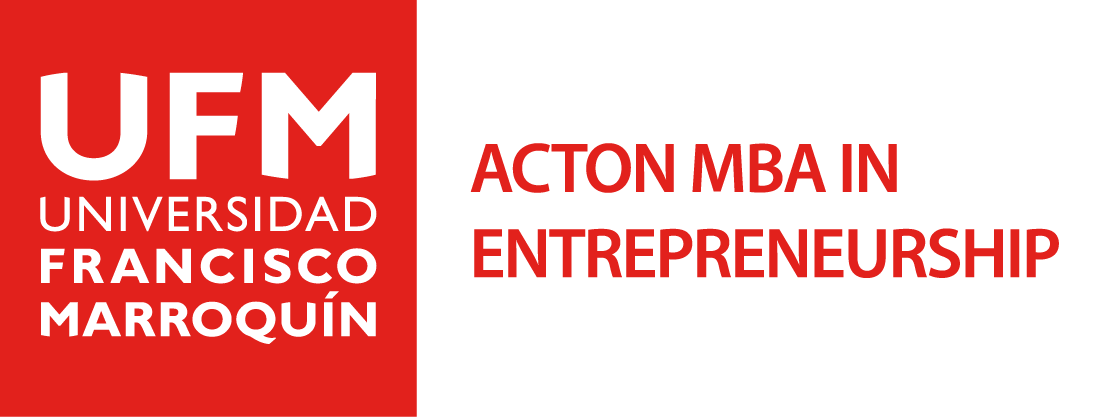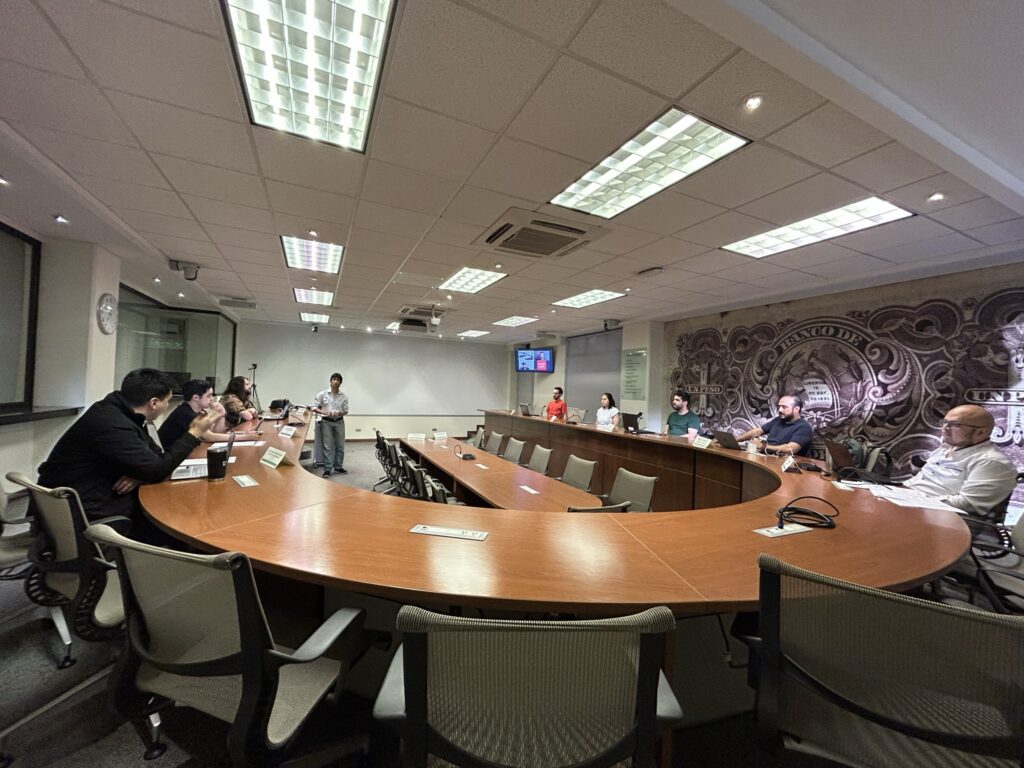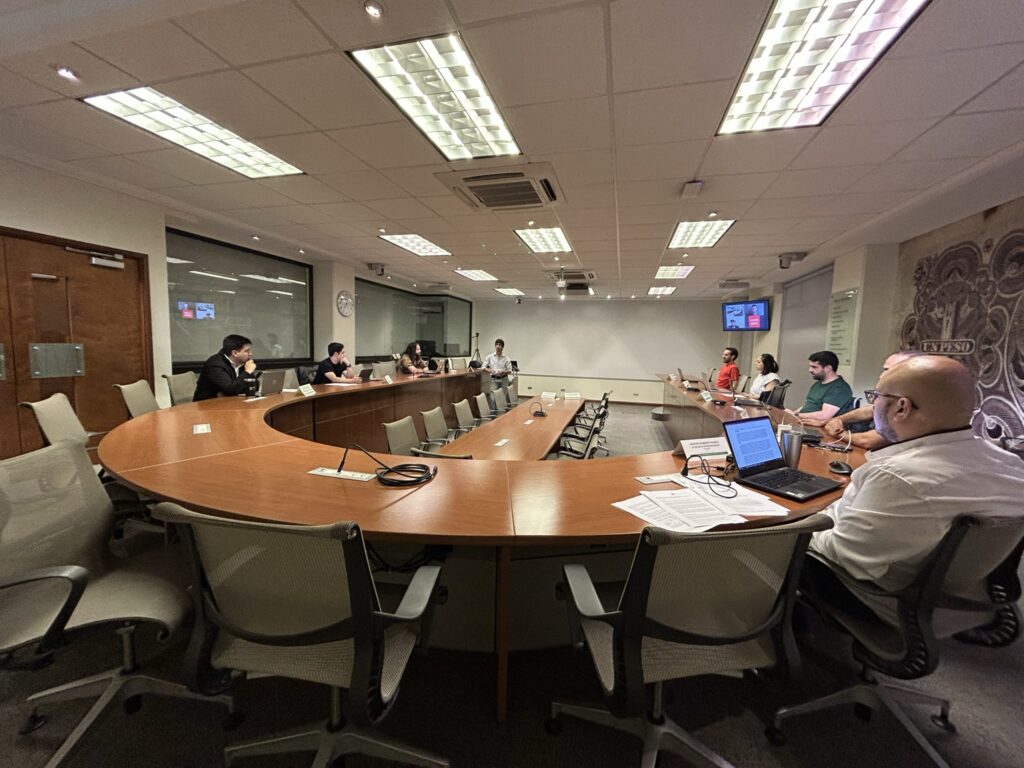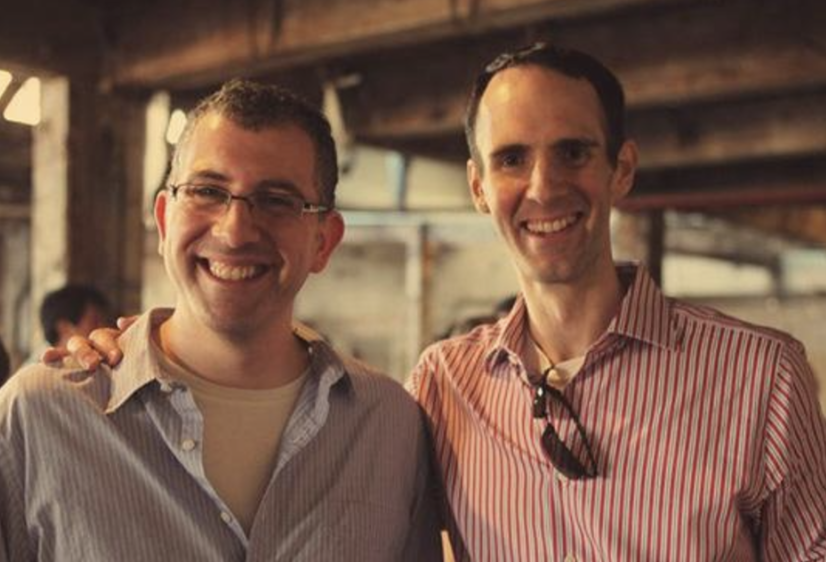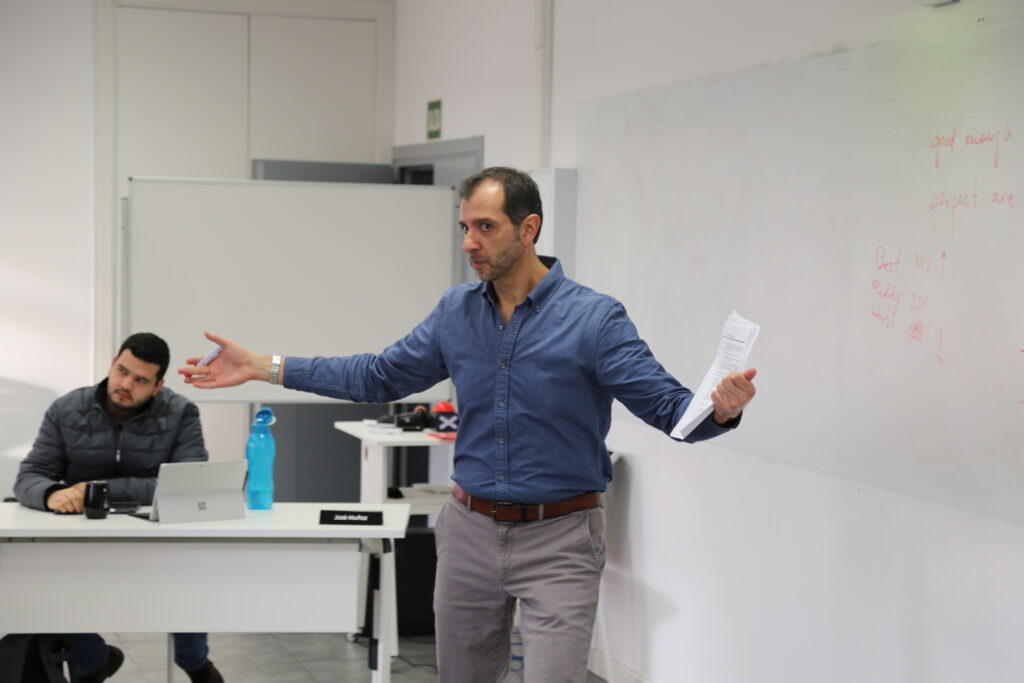Alumni Voices: Going to Acton after Practicing Law
I sensed pretty early in my legal career that I wanted a more entrepreneurial path, but it was a vague idea, not anything concrete.
Whether they are looking to reshape their law practice, adapt the role that the law plays in their careers, or change career directions entirely, entrepreneurially-minded attorneys have been drawn to Acton for its efficient, hands-on approach to teaching, and its promise to prepare them to take that next step.
And once they are in the Acton classroom, students with legal backgrounds prove to be particularly valuable. They often shed light on some of the more practical obstacles to business, spot especially well-hidden opportunities, and share real-world experience relevant to the case at hand. And they often tell us that, given the rigors of law school and the demanding schedules of most associate-level attorneys, the rigorous discipline required by Acton’s curriculum comes more naturally to them than it might for some of their classmates.
We recently caught up with three of our alumni who practiced law for several years before enrolling at Acton. True to form at Acton, even with this common background, each of them entered the classroom with unique goals and has followed his own unique entrepreneurial journey since graduating.
The Alumni
Joe Price (’09) is president and general counsel at Academic Works, a software company that helps colleges, universities, and foundations match students with scholarship opportunities, manage all accounts, and recognize donors. He graduated from Baylor University School of Law and practiced law for a little more than three years before attending Acton. After spending his first-year clerking for a US district judge, Joe worked for an international law firm in business litigation, with a focus on patent litigation.
Josh Epstein (’10) runs Serendipity Bridal, a retail store that he took over from his wife and father-in-law. He also still practices law part-time with a small corporate law firm Bissex & Watson. “I find the practice of law very rewarding in this new environment,” Josh told us. He graduated from the University of Texas at Austin School of Law and—before he started at Acton—Josh practiced corporate law at a large international firm for about four years.
Michael McDermott (’10) is CEO and cofounder of a number of unique food trucks that he custom-designed with his business partner. Michael graduated from the University of Texas at Austin School of Law and practiced for three and half years, with a primary focus in patent litigation, prior to attending Acton.
On Deciding to Pursue an MBA at Acton …
Michael
I wanted to leave legal practice to start and run my own company, but had no business background. Acton offered intense entrepreneurial training in a condensed timeframe.
Joe
After practicing law for a few years, I knew that it wasn’t what I wanted to do for the rest of my career. As I started considering other options, I kept coming to the conclusion that what I really wanted to do was start and run my own company. So, I had a lot of conversations with friends and mentors about different avenues that I could take to get from where I was to where I wanted to be.
What became pretty clear to me was that I was missing some fundamental skills that I would need to start and run my own business, especially in the areas of finance and accounting. At first, I didn’t even consider going back to school as a way for me to acquire those skills, because I didn’t think spending two years in a traditional MBA program would get me what I wanted, which was the hands-on skills it takes to start and run a business. Instead, I was looking at ways that I could join a small- or medium-sized company or buy a small company so that I could learn those skills through experience before starting something from scratch.
And in the midst of looking at all of these other options, I ran into Jack Long at a party, who told me about Acton. After talking to Jack and reading about Acton on the website, I couldn’t believe how perfect the program sounded. I met with several alumni and sat in on some classes and was convinced that Acton was exactly what I was looking for. And I was confident that I would gain the skills I needed in less time and be in a position to start my own company much quicker than if I pursued the other avenues I was considering.
Josh
I sensed pretty early in my legal career that I wanted a more entrepreneurial path, but it was a vague idea, not anything concrete. I decided to get an MBA in large part because I needed a jumping off point. This was also my goal when I applied: to have a fresh start in my career, but with a whole lot more knowledge than I would have otherwise had about what I wanted to do in entrepreneurship and how to do it. Acton was the only MBA program I applied to, for a few reasons.
First, the focus on entrepreneurship. I wanted to learn how to start and grow a business. I did not have any interest in going into investment banking, consulting or the other industries for which a more traditional MBA might make sense. Based on my research, no other program had the laser focus I wanted out of an MBA program.
Second, after three years of law school, the abbreviated (albeit much more intense) Acton program made more sense for me and my family than another two years of school. Last, I wanted to learn from real businesspeople, and Acton was the only MBA that offered this to the degree that it does.
On How a Legal Background Affected Their Acton Experience …
Joe
Having a legal background helped me look at some of the cases in a different way. I could see some of the risks in certain deals or opportunities that weren’t as obvious to other students.
Josh
My legal experience was a big help. I practiced corporate law, so I had worked on many of the deals we talked about in our cases at Acton. As a result, I didn’t have to spend as much time educating myself on the mechanics or terminology of the deals being discussed in class, which allowed me to focus more time on the other aspects of the case. Law school was also helpful in that, having already experienced three years of Socratic method, the Acton case process was a bit less intimidating to me than it otherwise might have been. The thought of being cold called in class was never scary to me, and I probably started off more confident than I would have been if I hadn’t been to law school. Last, people began to kind of think of me as the binding authority on anything legal. That was kind of funny, but also presented a great opportunity to interact with lots of my classmates and learn to explain legal concepts in nonlegal speak. In this respect, Acton also made me a better lawyer.
Michael
The Acton Socratic teaching approach is reminiscent of legal education. The familiar teaching style probably made absorbing the large amount of completely new material a bit smoother.
On Acton’s Impact since Graduation…
Josh
The effect on my career has been pretty drastic. In short, I went from being an attorney at a big law firm—my first real job—to taking over all aspects of running a retail store. In two-and-a-half years, this has included creating new compensation structures, hiring new staff, setting up systems for inventory management, a major renovation of our space that included going from 5700 to 3500 square feet of space (without impacting sales of course), developing and implementing email marketing campaigns, managing a staff of approximately ten employees, and too many other things to mention.
I can say this with confidence: without Acton, I would not have known where to start. Because I went to Acton, I had a framework for every decision I’ve had to make.
Joe
I would not be doing what I am doing today if I had not gone to Acton. In my current role at the company I cofounded, I handle all of our finance, accounting, human resources, and legal aspects of the business, and oversee the operations of the client services division.
I use skills I learned at Acton in every aspect of what I do, including the legal component. And there were so many times, especially in the early days of starting the company, in which I was faced with a situation where I was able to apply the frameworks I learned at Acton to help guide me through a difficult decision.
Advice to New and Prospective Acton Students who have a JD …
Joe
If after Acton you are going to start and run your own company, you are going to continue to use your law degree, as there are so many legal issues that come up in every business. The difference will be that your client will be your company. So, use Acton not only as an opportunity to gain all the business skills you need, but also as an opportunity to make yourself a better lawyer.
Acton gave me such a better understanding of business and how business owners think that I feel much more capable of truly counseling a business, whether it’s my own or not, with regard to its legal issues. I think if you keep that in mind as you go through Acton, you will feel like you gained even more value from the program.
Michael
Acton is not a traditional MBA, so it is not a ‘tack on’ for attorneys wanting the resume boost of an MBA to their JD. It is intense training for people who want to be entrepreneurs. And attorneys seeking to become entrepreneurs will likely find their legal training a powerful compliment in entrepreneurship.
Josh
First, really consider the difference between a legal career and a life as an entrepreneur from a financial standpoint. If you’ve already been practicing for a while and have a family, there can be a pretty big drop from the standpoint of financial security as you begin your life as an entrepreneur. If you are someone with a low tolerance for what might feel like significant financial risk, or someone who has grown accustomed to a certain lifestyle based on a higher level of income, the initial change can feel very dramatic.
Next, and more importantly (for me at least), imagine the best-case scenario for your legal career. For me that would have been making partner at a firm. If you are like I was, you know pretty definitively that, even if things went really well in your legal career, you wouldn’t be satisfied with the result. For me, this trumped the initial financial shock of life without the same consistent paycheck coming in every two weeks. If this sounds kind of like you, and being the master of your own destiny is something you truly yearn for, I highly recommend Acton.
More Questions? Let Us Know!
Do you have any other questions about applying to Acton, starting a business, getting an MBA after completing law school, or shifting the nature of your career? Sign up to visit a class or feel free to contact us with your questions directly!
